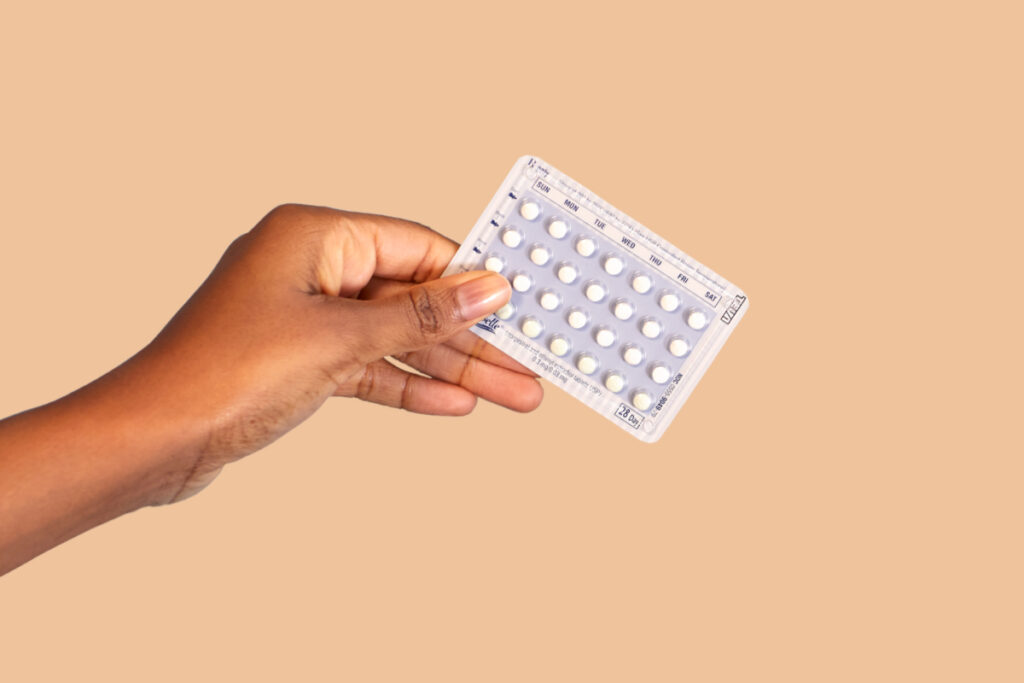Birth Control and PCOS
What hormonal contraception can (and can’t) do to alleviate polycystic ovarian syndrome symptoms.
When a woman has polycystic ovarian syndrome (PCOS), this means she has a very specific imbalance in the hormones that control her reproductive system. You know that every month your menstrual cycle is controlled by your hormones. Your brain releases hormones that make your ovaries release eggs and when the eggs don’t get fertilized, the lining of your uterus cleans out. Then you have a period. This usually happens about every month or so, but when you have PCOS, your ovaries grow those eggs in lots of little cysts but the eggs are not released on a regular schedule. This is really pretty common; as many as 1 in 10 women of childbearing age have PCOS.
The Symptoms of PCOS
The main complaint a woman with PCOS has is irregular periods. You may have no periods for months or you may have unpredictable periods that don’t have any schedule. You most likely don’t have any signs that your period is coming; it just shows up unannounced. Some other things you may notice include changes in the hair on your face and body, an increase in acne, thinning of the hair on your head, weight gain, changes in the color of your skin and the appearance of little skin tags in your armpits. No one has all the signs and some of them might be really subtle.
Birth Control and PCOS
Birth control is usually prescribed to control some of the symptoms and complaints of PCOS. We will pick a method for you based on exactly what it is that we are trying to make better. The main goal is to bring all the various hormones in your body into balance so that one isn’t the strongest in how it affects you, stronger than any others. For example, all women have some male hormone in their systems. But if the male hormone is over-acting and causing you problems like weird hair growth or acne we will suggest a method to best counteract that. A combination method with estrogen and progestin can treat the issues. Some examples are the pill, ring, and patch.
Birth control from Nurx costs as little as $0 with insurance or $15 per month without insurance.
Another example is that perhaps the hormone imbalance is allowing for the lining of your uterus to grow super thick and only clear out once in a while. Again, we can bring your hormones back into balance by adding in what you need, and will recommend a method that will bring on regular, predictable, shorter, and lighter periods for you. For women who cannot or choose not to use combination birth control we can sometimes use progestin-only methods to treat your issues. Some of these methods are progestin-only pills, depo provera shots, the implant, and the hormone IUDs.
Other Treatment for PCOS
Although the birth control options can manage some of the symptoms of PCOS there may be other symptoms that need to be treated with other medications. Metformin is a diabetes medicine that can be used to regulate your sugar levels if PCOS is causing them to be high. The other effect of metformin is to make the ovaries more sensitive to your natural hormones so all those ovarian cysts that weren’t releasing eggs before may now begin to do that on a regular basis. For this reason it is widely used for women who want to get pregnant but can’t because they aren’t ovulating well enough (and you need to be aware of this effect on your fertility if you are taking metformin and not trying for pregnancy). Spironolactone is a medication that is usually used for elevated blood pressure. In the case of PCOS it is used to help fight acne and hair growth by directly preventing your male hormones from being so efficient at causing the problems
It is always a good idea to know as much as you can about yourself and your health. We can help you.
About the Author
Betty Acker, MD, is an OB-Gyn with more than 30 years of experience practicing in both military and civilian settings. Dr. Acker writes the Wine and Gyn blog.



